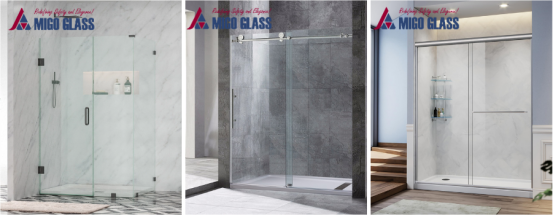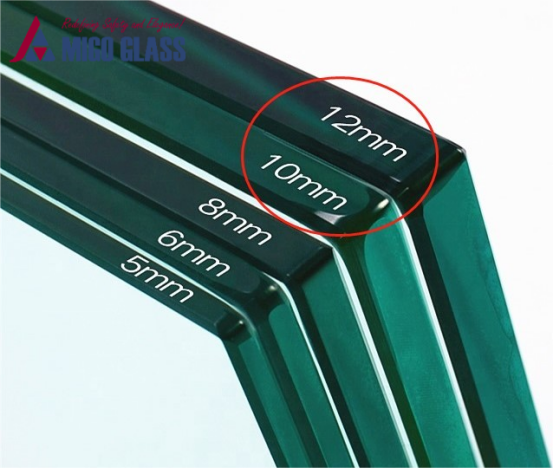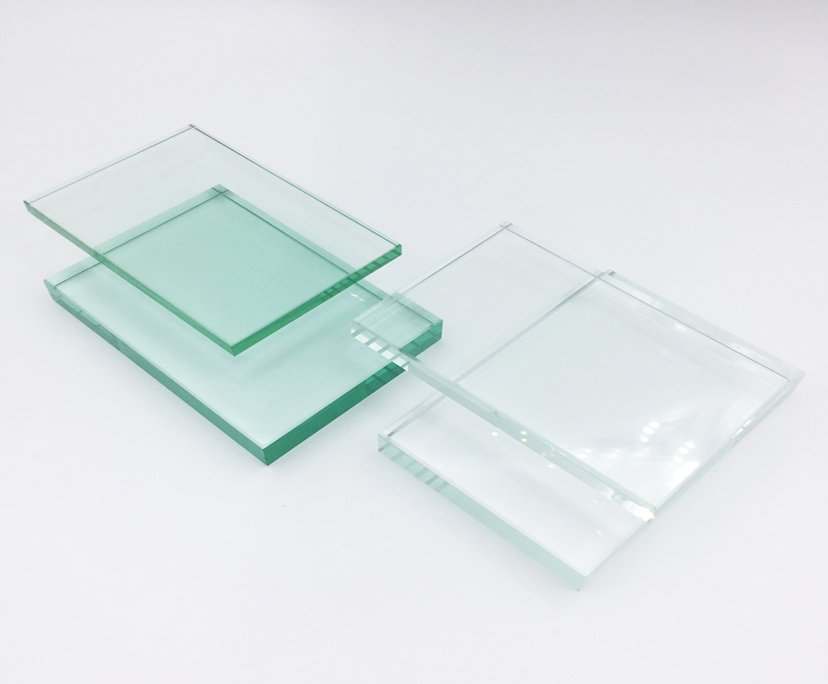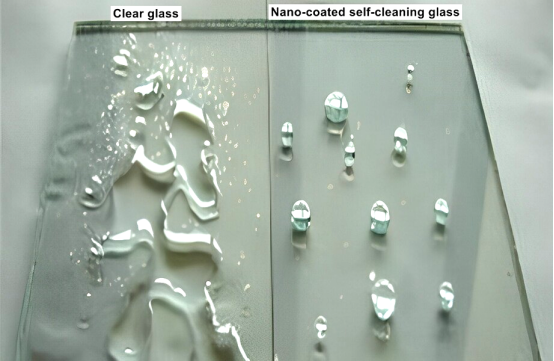Classification by Tempered Bathroom Door Type
Single-leaf Casement/Outward-swinging Tempered Bathroom Door
As the preferred choice for small-sized bathrooms (4-6 square meters), this type of door requires a balance between lightness and impact resistance. 8mm-10mm tempered glass is the optimal thickness range. If the door is nearly 80cm wide and 2.2m high, upgrade to 10mm glass. Its bending strength is 20% higher than 8mm glass, preventing the door from sagging under its own weight after long-term use, thus preventing the gap from widening and causing water leaks during showering. (Experiments demonstrate that at 2.2m height, the gap between 8mm glass and 2.2m width grows by an average of 0.3mm after one year, whereas 10mm glass expands by just 0.1mm.) A 70cm wide single-leaf swing door with 8mm glass may cut expenses while providing a sense of airiness in a 6m2 bathroom.
Double-leaf Sliding Tempered Bathroom Door
Sliding doors rely on tracks, so 10mm tempered glass offers the optimal balance of stability and load-bearing capacity. 8mm glass, due to its light weight (20kg per square meter), is susceptible to swaying due to airflow or thrust during sliding, generating noise and causing it to deviate from the track. 10mm glass weighs 25kg per square meter. A single 75cm wide door weighs approximately 18.75kg, and a double-leaf door weighs 37.5kg. It is compatible with 90% of standard tracks on the market (load capacity ≤ 50kg), provides smoother sliding, and wears the track pulleys 30% slower than 8mm glass. If the total width of the double-leaf door exceeds 1.2m (e.g., 1.4m), a 10mm thickness can improve impact resistance by preventing inertia from hitting the side of the track during sliding and lowering the risk of glass edge breakage.
Extra-wide/Extra-tall Tempered Bathroom Doors
For big doors in large flats or villa baths, 12mm tempered glass is the minimum safety requirement. Gravity has a huge impact on extra-wide (90cm) or extra-high (2.4m) doors. At a height of 2.4m, 8mm glass is readily bent and deformed in the middle, resulting in a 40% sealant loss after three years. However, 12mm glass has 30% more bending strength than 10mm glass, and its flatness variation may be reduced to 0.2mm within five years. Furthermore, 12mm glass has a higher impact resistance, lowering the danger of breaking by 40% when an adult falls and collides with it. For example, for a villa bathroom door that is 1m wide and 2.3m high, 12mm glass can meet both safety and aesthetic requirements.
Hanging/Floor-Mounted Tempered Bathroom Doors (No Floor Track)
Hanging doors rely solely on top support and require a thickness of 2mm thicker than floor-to-ceiling doors. Tempered glass of 10mm-12mm is available in various widths. For suspended doors 70cm or less in width, choose 10mm. A weight of 25kg per square meter can distribute the stress at the top suspension point and prevent loosening. (A 65cm wide door weighs approximately 16kg and is suitable for conventional suspension rails.) For doors 70cm or wider (e.g., 80cm), choose 12mm to enhance bending resistance and prevent cracking of the glass due to excessive localized pressure. (Hotels often use 65cm wide suspended doors with 10mm glass to balance stability and user experience.)

Key Influencing Factors
Bathroom Size
For small apartments (≤6m2), 8mm-10mm glass is preferred, paired with an extremely narrow frame (≤1.5cm) to reduce the “squeezing” effect of the door. A 4m2 bathroom might benefit from an 8mm single-leaf door to increase mobility space. For bigger flats (>10m2), 10mm-12mm glass is suggested. 12mm glass combined with a broad door (e.g., 90cm) can improve the bathroom’s premium sense while avoiding the impression of a narrow door. A 12mm double-leaf sliding door in a 12m2 bathroom can provide visual balance with the bigger area.
Target Audience
For households with elderly or children, add 2mm to the standard thickness. For senior people with limited mobility, upgrading from an 8mm to a 10mm door enhances impact resistance and lowers breaking in accidents. When youngsters slam the door, the vibration amplitude of 10mm glass is 40% lower than that of 8mm glass, lowering the possibility of shattering. For families who originally chose 8mm single-leaf doors, upgrading to 10mm provides enhanced safety.
Installation Conditions
For single-leaf doors installed on hollow brick walls (non-load-bearing walls), 8mm-10mm thickness is recommended (12mm glass is too heavy and can cause hinge loosening and wall cracking). For load-bearing walls, 10mm-12mm thickness can be used flexibly. For sliding doors, confirm the track’s load capacity. For standard tracks (≤50kg), use 10mm double-leaf doors (total weight 37.5kg). If the track’s load capacity is only 40kg, choose 8mm double-leaf doors (total weight 30kg) to avoid track deformation due to overload.

Pitfalls to Avoid
Myth: Choosing a 15mm Thick Shower Door is More Durable
15mm glass weighs 37.5kg per square meter. A single 80cm wide door weighs 30kg, and a double door weighs 60kg in total. This far exceeds the load-bearing capacity of standard rails (≤50kg). Long-term use can cause rail deformation, pulley damage, and even door slippage. Furthermore, 15mm glass is heavy to open and close, resulting in a poor user experience. Only custom-made rails with extra-heavy loads (≥80kg) should be considered.
Myth: Ultra-clear tempered glass can be "thinned" for use.
Ultra-clear glass provides a high light transmittance and equivalent impact resistance to conventional tempered glass. When selecting ultra-clear glass for its visual appeal, stick to the regular thickness. Do not lower the thickness from 10mm to 8mm since it will affect safety.
Misconception: 10mm thickness is appropriate for all sliding doors.
For narrow sliding doors with a single leaf width of 60cm or less, 8mm glass is sufficient (a 60cm wide door weighs 12kg, and two leaves weigh a combined 24kg, far less than the track’s load capacity). It also reduces sliding noise by 30% compared to 10mm glass. Forcing 10mm glass increases track load and shortens its lifespan (10mm glass increases track wear by 25%).




